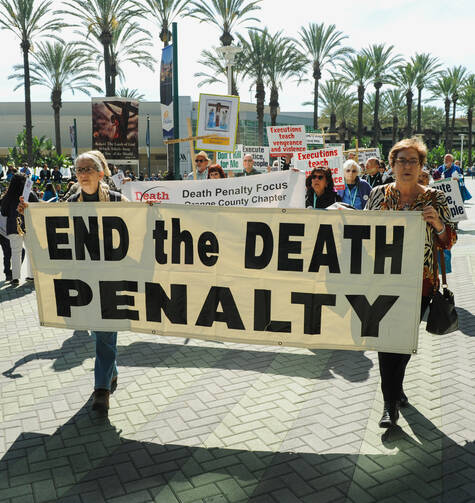WASHINGTON (CNS) -- Most Americans support life imprisonment over the death penalty, according to a Gallup poll released Nov. 24, revealing a shift in the majority opinion on this issue for the first time in 34 years.
The poll, based on results from telephone interviews conducted Oct. 14-31 with a random sample of 1,526 adults in the U.S., showed 60% prefer that convicted murders receive a sentence of life imprisonment, while 36% said capital punishment would be better.
This view marks a shift in Americans' opinion over the past two decades. In the 1980s and 1990s, the majority opinion leaned toward the death penalty. The survey also is just the second time more people said they thought life in prison was a better punishment than the death penalty; in 2007 they did so by 1 percentage point, with 48% favoring life in prison and 47% favoring the death penalty.
The current poll, with a margin of sampling error of plus or minus 3 percentage points, breaks down respondents by age, sex and party affiliation. Within these groups there were differing opinions: Women showed stronger support for life in prison (66%) than men (53%). Younger people also were more likely to show support for life in prison (68%) than older people (57%). Along party lines, 58% of Republicans supported the death penalty over 38% who said life in prison was the better option, and 79% of Democrats preferred life in prison while 19% preferred the death penalty be administered.
Five years ago, the American Values Survey by the Public Religion Research Institute showed that 48% of Americans preferred life without parole as the punishment for murder and 44% preferred the death penalty.
This poll revealed religious divides on the issue and showed that Catholics, Jews, members of other non-Christian religions and the religiously unaffiliated preferred life without parole as a punishment over the death penalty. Only white evangelicals (59%) and white mainline Protestants (52%) expressed majority support for the death penalty.
Catholics in the 2014 survey were sharply divided by race: Among white Catholics, 45% favored the death penalty and 50% favored life in prison. In contrast, only 29% of Hispanic Catholics favored the death penalty while 62% said convicted murderers should be given life imprisonment sentences.
In an Oct. 10 roundtable discussion about the death penalty with Catholic bishops, Archbishop Paul S. Coakley of Oklahoma City said: "It's really important for our Catholic people to really dig into and learn, study, read the teachings of the magisterium of the church" on this issue.
He said with the popes -- St. John Paul II and Popes Benedict and Francis -- there has been "a steady movement toward a greater clarity in terms of the morality and the inadmissibility of the death penalty."








